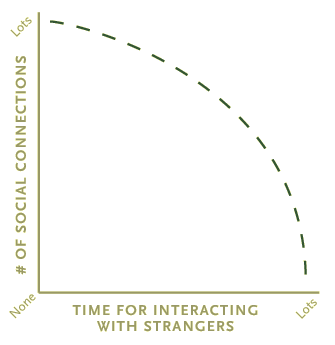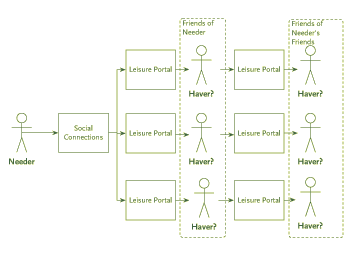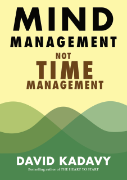Subscribe to blog updates via email »
A Conceptual Model for a Socially-Intelligent Classifieds System
Where do you usually go when you’re selling your car, looking for an apartment, etc? Craigslist, right?
And Craiglist works great for alot of things, but let’s say you’re looking for a roommate. First, you’re going to get a shitload of e-mails. Many of those e-mails are going to be totally irrelevant: from incompatible candidates, or people who generally didn’t read your post. You’re also going to get some spammers and scammers. When you finally sort through all of that, you’ll set up some appointments to meet with a few candidates. Many of them are not going to show up at all – they have no prior relationship with you, so there’s no damage to be done to their reputation by just not showing up. If you do finally find someone whom you’re comfortable living with, ultimately, they’re just a stranger – even if you get references, because those references are from strangers.
The problems of a socially “dumb” classified system
The problem is that something like Craigslist isn’t socially intelligent. It’s just a huge sea of anonymous listings. It’s oblivious to your social connections and doesn’t employ current methodolgies for building trust amongst members. With the influx of social networking over past years, people are able to maintain larger and larger networks of friends. It’s not uncommon for someone to have 400+ friends on Facebook. Shouldn’t these social connections be of some use?

WANT TO WRITE A BOOK?
Download your FREE copy of How to Write a Book »
(for a limited time)

Methinks also that as we start to have larger and larger networks of friends, we have less and less time for people whom we aren’t connected to in some way – thus the problem of the Craigslist “flake factor.”
If you’re looking for a roommate, you could let all of your friends know about this by sending out an e-mail to all of them. But nobody wants to be “that guy,” and you’re just being unrealistic if you expect your friends to forward that e-mail on to your friends. The trick is, getting that information in front of your social connections without annoying them.

So here’s a conceptual model of what such a system would look like. People’s needs are ported through a mechanism that understands their social connections. Those needs are then broadcast to those social connections through their “leisure portal.” What’s a leisure portal? It’s the “playground” of the internet. Huh?
The internet’s playground: the leisure portal
People are very protective of their e-mail inboxes. It’s their territory. So when you bug them with something that is irrelevant to them, they take offense.
Imagine you hated playing basketball. All of your friends know that you hate playing basketball. It’s okay to not like to play basketball. But there’s this one friend that comes by your place unannounced and says “hey, let’s play basketball.” and you say “I hate basketball, you know that” and then he says “well, I’m going to play basketball, tell your friends that I’m going to play basketball.” If he did that enough times, he probably wouldn’t be your friend for long. Getting impersonal e-mails from your friends is a bit like that.
So if e-mail is like “your house,” then a “leisure portal” is more like a “playground.” It’s not your home, you’re there in public space by your own volition. To the right of you, some of your friends are on the monkey bars, to the left, some others are playing kickball, behind you, they’re playing red rover, and in front of you, some other friends are playing chess. You aren’t obligated to join any of them, but you’re certainly welcome to – and you can always just go home.
Get it? A leisure portal is something that people come in contact with every day, usually during their leisure time. The technical equivalent of a playground. Something that, when you broadcast to it, doesn’t give your friends a sense of obligation to act, the way that a mass e-mail does.

Right now, the closest thing to a leisure portal on the internet is Facebook’s news feed. Hopefully you aren’t on Facebook trying to get some real work done – you’re just there to kill time and see what’s up with your friends. If you see in your news feed that one of your friends is looking for a roommate, that may be of interest to you. You may be able to help out, or know someone who can help out, but you may not. It’s not likely to bother you.
The plug
Sound familiar? Yeah, this is the conceptual model behind Through a Friend. Right now, Facebook provides the best system for bringing this model to reality. But hopefully it can be scaled up even further at some point.



